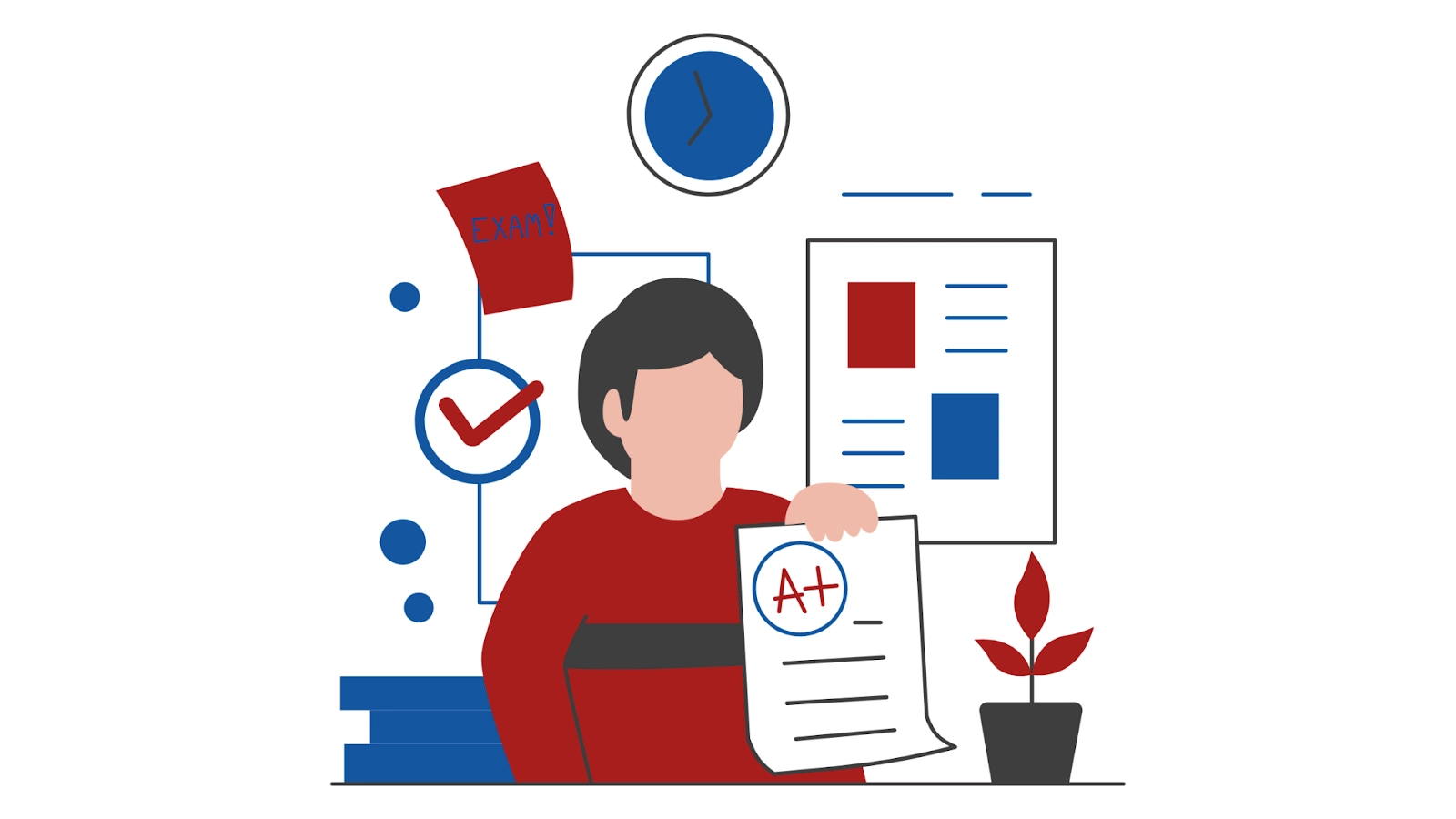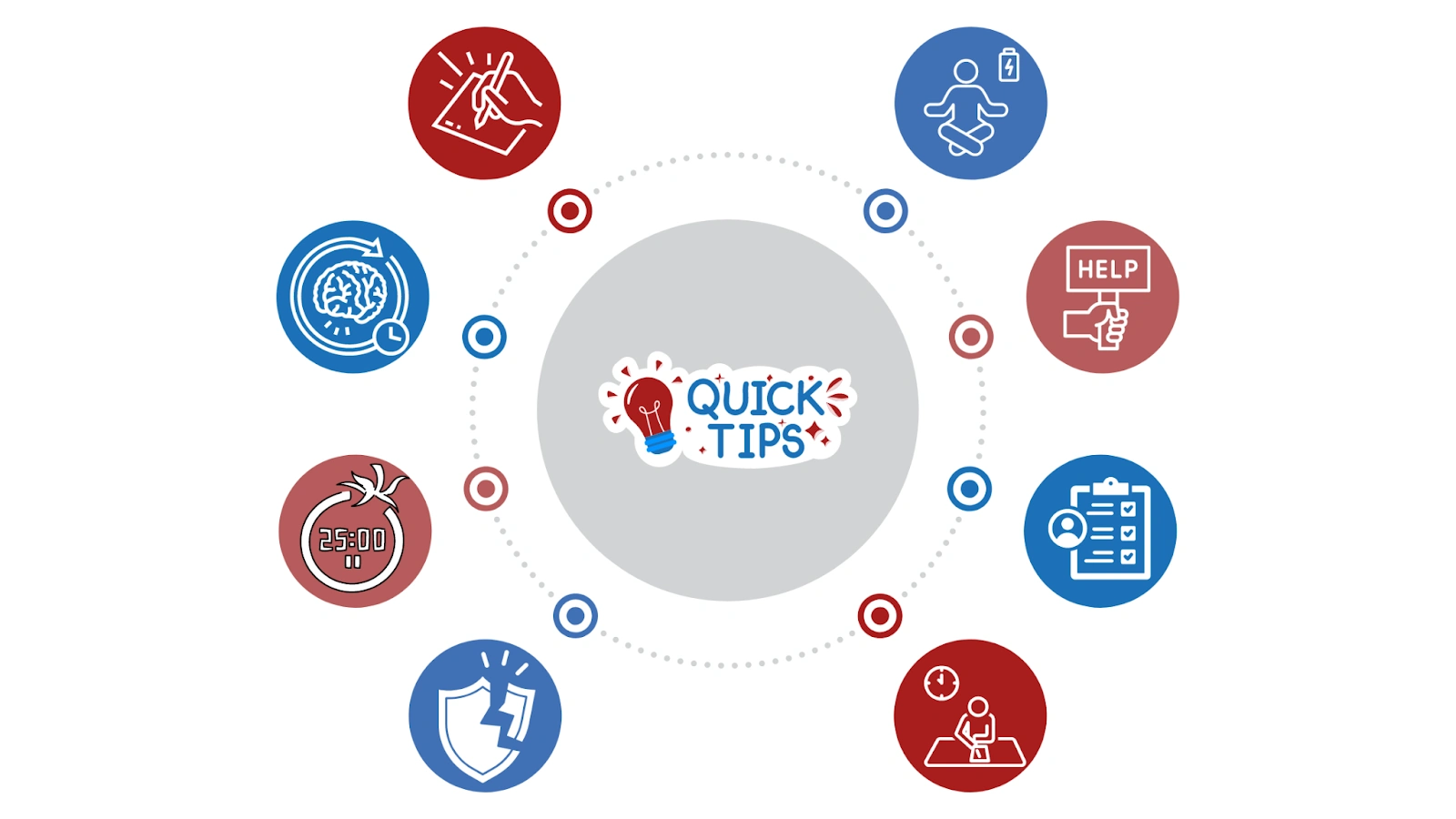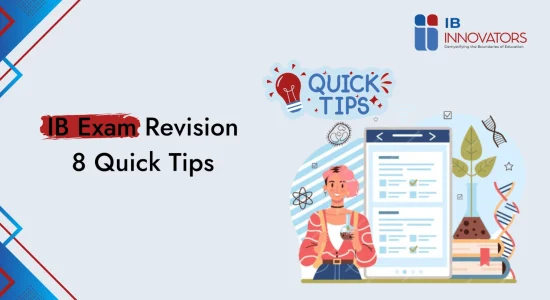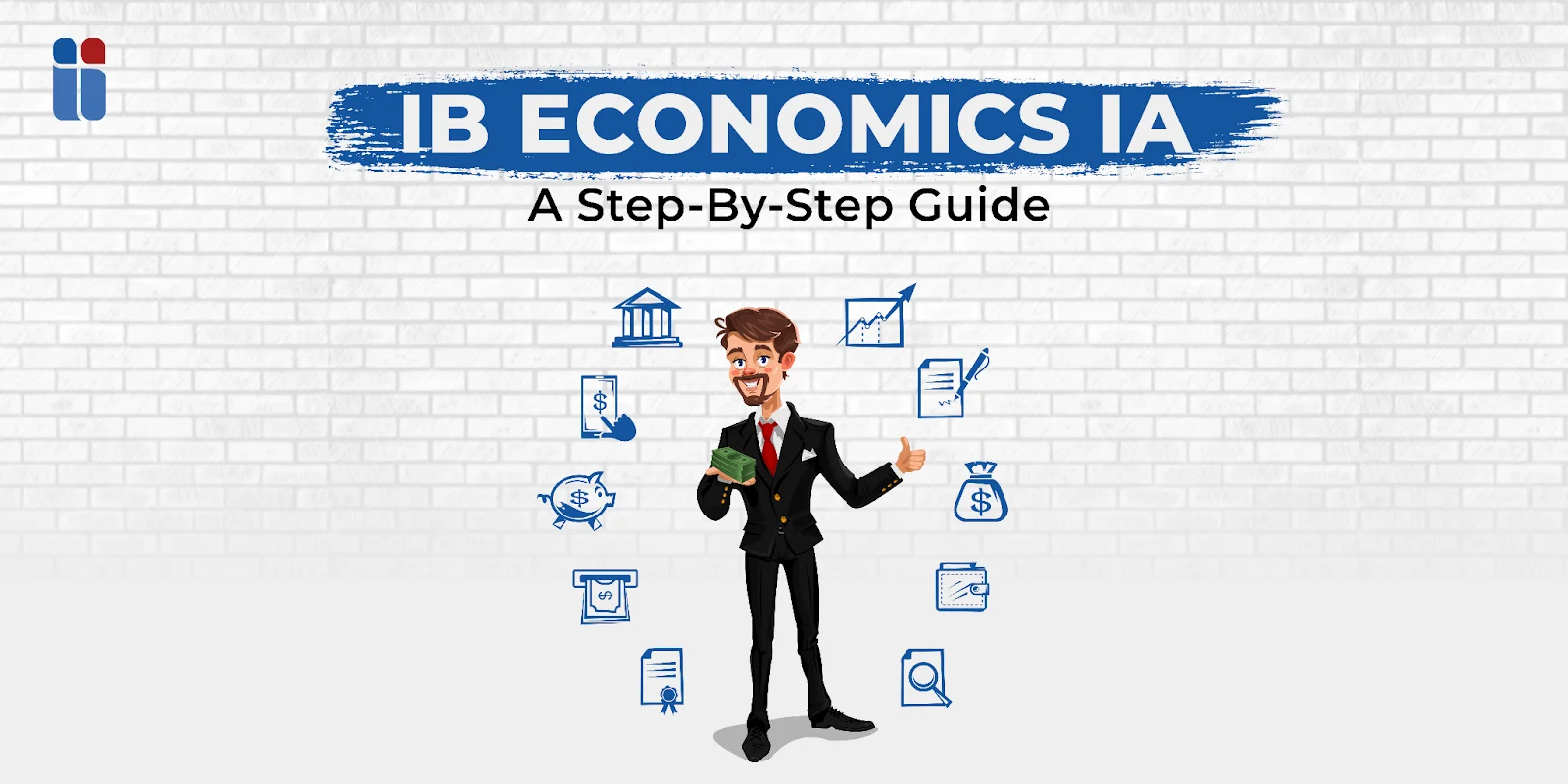Is the stress of IB exam revision starting to build up and you’re unsure where to begin?
As your exams draw nearer, it’s easy to feel lost in a sea of textbooks, past papers, and study schedules.
But the good news is that with the right strategies, you can focus your efforts and make your revision sessions far more efficient.
This blog is a free treat for you as we’re going to share eight quick and effective IB exam revision tips to help you streamline your study sessions, stay organized, and focus on what truly matters.
Whether you’re in the final stages of preparation or just starting to ramp up your study efforts, these IB exam tips will ensure you’re making the best use of your time and walking into the exam hall feeling confident and prepared.
Book our IB tutoring courses and take your revision game to the next level with IB Innovators revisions courses!
Contact us for IB tutoring and ace your IBDP exams with IB Innovators Expert Tutors!
IB Exams

The International Baccalaureate curriculum is known for its rigor. They assess students’ knowledge and understanding of a broad range of subjects. Unlike other exam systems, the IB exams focus on critical thinking, problem-solving, and real-world applications.
Whether you’re taking IB ESS (Environmental Systems and Societies), IB Chemistry, IB Biology, IB BM (Business Management) IB French, or IB Math, each subject has specific exam requirements designed to challenge and prepare students for higher education.
The exams include a variety of formats, including written papers, oral presentations, and internal assessments (IA).
For example, the IB French oral exam involves speaking skills, while the IB ESS covers essay-style questions that test environmental knowledge. Mastering each subject requires a deep understanding, not just rote memorization.
|
IB exam tips! Understand the exam structure and what each section requires. Familiarize yourself with past papers daily. |
Schedule for IB Exam Revision?

IB exams are held twice a year, typically in May and November. The majority of students take their final IB exams in May, while a smaller number of students, particularly those in the Southern Hemisphere, take their exams in November.
Revision for these exams should begin well in advance, ideally two to three months before the exam date, to ensure adequate preparation.
Effective revision starts with creating a detailed schedule. The IB curriculum is vast, so spreading out your study sessions over weeks and months is crucial. Divide your time according to the weight of each subject and your strengths and weaknesses.
A typical schedule might involve allocating more time to difficult subjects like IB Math or IB ESS. Break your revision into manageable chunks.
|
Example! Spend two hours on IB ESS on Monday, focus on IB Math on Tuesday, and practice IB French oral on Wednesday. Likewise, revisit each subject throughout the week for reinforcement. |
Purpose of IB Exam Revision

The purpose of IB exam revision goes beyond just passing the exams. It helps solidify your understanding of complex concepts, ensuring you’re fully prepared for university or future endeavors.
IB exams assess not only what you know but also how you apply that knowledge. Revision helps bridge the gap between theory and application.
How Difficult Is It to Pass IB Exams?

IB exams are known for their difficulty. The wide range of topics, combined with the need to apply knowledge to new situations, makes them more challenging than many national exam systems.
To pass, students must not only master the material but also develop time-management and exam-taking skills.
For IB ESS, understanding key environmental concepts and their applications is crucial. In IB Math, speed and accuracy in solving problems are vital.
For the IB French oral exam, being able to express your thoughts clearly and respond to prompts is essential. The pass rates for IB exams vary, but achieving a high score requires dedication, practice, and consistent revision.
Quick Tips to Excel in IB Exams

Here are some quick tips to clear your IB Exams:
1. Create a Study Plan and Stick to It
Planning is key to effective revision. Break down each subject into topics and allocate time for each one.
For instance, dedicate specific days to IB ESS, IB French oral, IB BM, and IB Math. Make sure your plan includes time for past papers and practice sessions. Consistency is essential, so stick to your schedule and avoid last-minute cramming.
2. Practice Active Recall
Instead of just reading through notes, use active recall methods to enhance memory retention. This involves testing yourself on key concepts, either through flashcards or past paper questions.
For IB ESS, create questions about environmental topics. For IB Math, focus on solving past problems under timed conditions.
|
IB Exam Tip! Use active recall techniques daily to build up your understanding of tricky concepts. |
3. Use the Pomodoro Technique
The Pomodoro Technique is great for maintaining focus during long study sessions. Spend 25 minutes working on a task, followed by a 5-minute break. After four sessions, take a longer break.
Use this method for subjects that require practice and repetition, like IB Math or the IB French oral exam. This helps keep your brain fresh and focused.
4. Work on Your Weak Points
Identify your weak areas early and spend extra time improving them. If you’re struggling with IB Math calculus or IB ESS case studies, don’t shy away from these topics. Instead, focus more time on understanding them.
Use different resources like online tutorials, past papers, and tutoring services to fill in the gaps.
5. Take Practice Exams
Nothing prepares you better than taking practice exams under exam conditions. These mock exams will help you manage time, get familiar with the format, and reduce anxiety.
|
Tips! For IB ESS, practice long-form essay questions. For IB Math, focus on solving past papers. The IB French oral exam also requires practice—record yourself answering prompts. |
7. Stay Organized with Your Notes
Having organized notes is crucial for effective revision. Use folders, digital tools, or notebooks to categorize each subject.
For IB ESS, separate your notes by topics, like ecosystems, pollution, and sustainability. For IB Math, organize formulas, theorems, and practice questions.
This way, when you start your revision, everything is easy to locate and review, saving you time and reducing stress.
8. Seek Help When Needed
Don’t hesitate to ask for help if you’re stuck on a topic. Reach out to teachers, classmates, or tutors to clarify confusing concepts. Joining study groups can also help you gain different perspectives on subjects like IB ESS or IB Math.
Sometimes a quick explanation can save you hours of frustration.
6. Rest and Recharge
While consistent revision is crucial, so is rest. Make sure you take regular breaks and get plenty of sleep. Overworking yourself can lead to burnout, and sleep is essential for memory retention. Include breaks in your study plan and don’t forget to relax.
Final Words
IB exams are challenging but manageable with the right approach. A well-structured revision plan, active recall techniques, and daily practice will set you up for success.
Focus on your weak areas, work on past papers, and don’t forget to rest. Whether it’s IB ESS, IB French, or IB Math, these quick tips will help you excel in your IB exams.
Interested in learning more? Check out our other blogs for additional insights and tips on how to excel in the IB program!
FAQS
At IB Innovators, we provide tailored, high-quality revision courses led by certified IBDP examiners. Our courses focus on personalized guidance, past papers, and strategic tips to help you excel in IB exams.
Whether it’s our Summer Course or the Winter boot camp, each course is for specific subject areas and exam techniques that will help you succeed.
We cover all IB subjects at the Higher Level (HL) and Standard Level (SL). From IB ESS to IB Math, to IB French, our revision courses are designed to help you master each subject’s unique challenges.
You’ll have access to structured sessions, past paper practices, and personalized feedback to ensure success.
Enrolling in our courses is simple! Visit our Courses page to explore upcoming courses like the Summer Course or Rapid Revision Course. Select the course that suits your schedule and needs, and register online to secure your spot.
Each course is limited to students, ensuring focused attention and personalized guidance.
Yes! IB Innovators offers 1-on-1 personalized revision courses tailored to your specific academic needs.
Whether you’re preparing for retakes or need help with specific topics like IB Math or IB ESS, our expert tutors will create a customized revision plan for you. You can request a custom course on our website.







